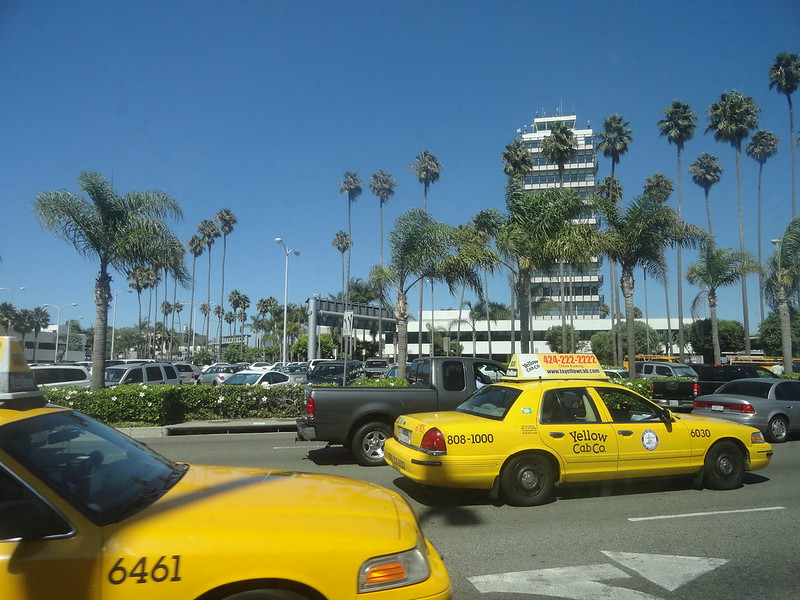
Photo: Boris Dzhingarov (Flickr)
LA to expand data-sharing rules to taxi sector
17 March 2021
by Christopher Carey
The Los Angeles Department of Transportation (LADOT) is finalising plans for a major overhaul of the city’s taxi sector in a bid to modernise the industry and ensure it keeps up with ride-hailing giants Uber and Lyft.
Reforms will include the introduction of an app-based service request model with up-front pricing – similar to models used by ride-share operators, switching paper-based driver reports with automatic data-sharing, and cutting overhead costs with an online permitting process that reduces turnaround time from two weeks to 48 hours.
Reports on trip time, locations and vehicle information that had been collected via paper reports from taxis will be collected through the Mobility Data Specification (MDS) data-sharing platform.
LADOT spokesperson Colin Sweeney told Cities Today: “Our taxi reforms will not only help us hold companies accountable for meeting our policy goals, but they also allow us to support a key industry and ensure it remains competitive in this quickly changing landscape.
“We are currently working with operators and the Los Angeles Taxi Commission to finalise these reforms.”
Ride hailing
While LADOT does not have the authority to regulate ride-share operators such as Uber and Lyft – this responsibility resides with the State of California Public Utilities Commission – Los Angeles World Airports (LAWA), the city agency that operates LAX, has authority from the state to set rules for all vehicles operating at the airport.
The city is working with LAWA to ensure ride-hailing companies operating within its remit would come under the new reforms, according to a 2020 report from the City Council. Rideshare firms have to date argued they are not subject to the city’s rules.
While it is currently unclear whether rideshare operators will be included, and a date for the implementation of the reforms has yet to be announced, the use of the MDS has the potential to draw further legal challenges.
Legal challenges
Last month a US District Court judge approved a Motion to Dismiss a case brought by the American Civil Liberties Union (ACLU) against LADOT) regarding its requirement for e-scooter firms to provide real-time data via the MDS.
In delivering its ruling, the court said LADOT’s interests were “legitimate and substantial” and dismissed privacy concerns regarding the MDS, finding it legal and consistent with both the Fourth Amendment and the California Electronic Communications Privacy Act (CalECPA).
The case followed a separate action from Uber after a long-running dispute with Los Angeles.
Last March, the ride-hailer launched proceedings to sue LADOT in federal court, alleging the data-sharing MDS requirements for its Jump e-bikes and scooters violated state and federal law.
In October 2019, LADOT suspended Jump’s licence for bikes and scooters after Uber refused to share the data. Uber lost the appeal against that decision before launching the proceedings last March, only to then withdraw the case in June 2020, after it transferred Jump to Lime as part of an investment deal.
Image: Anthony Quintano (Flickr)














